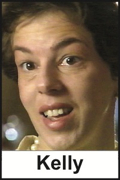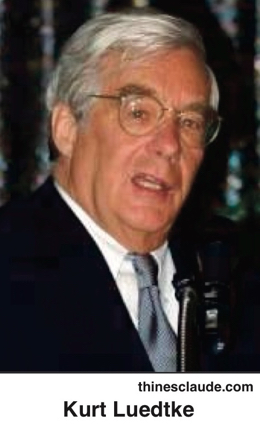Rascals case in brief
In the beginning, in 1989, more than 90 children at the Little Rascals Day Care Center in Edenton, North Carolina, accused a total of 20 adults with 429 instances of sexual abuse over a three-year period. It may have all begun with one parent’s complaint about punishment given her child.
Among the alleged perpetrators: the sheriff and mayor. But prosecutors would charge only Robin Byrum, Darlene Harris, Elizabeth “Betsy” Kelly, Robert “Bob” Kelly, Willard Scott Privott, Shelley Stone and Dawn Wilson – the Edenton 7.
Along with sodomy and beatings, allegations included a baby killed with a handgun, a child being hung upside down from a tree and being set on fire and countless other fantastic incidents involving spaceships, hot air balloons, pirate ships and trained sharks.
By the time prosecutors dropped the last charges in 1997, Little Rascals had become North Carolina’s longest and most costly criminal trial. Prosecutors kept defendants jailed in hopes at least one would turn against their supposed co-conspirators. Remarkably, none did. Another shameful record: Five defendants had to wait longer to face their accusers in court than anyone else in North Carolina history.
Between 1991 and 1997, Ofra Bikel produced three extraordinary episodes on the Little Rascals case for the PBS series “Frontline.” Although “Innocence Lost” did not deter prosecutors, it exposed their tactics and fostered nationwide skepticism and dismay.
With each passing year, the absurdity of the Little Rascals charges has become more obvious. But no admission of error has ever come from prosecutors, police, interviewers or parents. This site is devoted to the issues raised by this case.
On Facebook
Click for earlier Facebook posts archived on this site
Click to go to
Today’s random selection from the Little Rascals Day Care archives….
Click for earlier Facebook posts archived on this site
Click to go to
Today’s random selection from the Little Rascals Day Care archives….
Even Betsy Kelley believed something happened
 Aug. 22, 2012
Aug. 22, 2012
“They would have had to experience this or seen this. I know that for a fact. I know they didn’t make it up. I mean, I’m an intelligent person….
“I feel very sure in my heart and in my mind that this happened…. but not with Mr. Bob and not at the day care.”
– Betsy Kelly, demonstrating (in an interview taped by Officer Brenda Toppin, March 16, 1989) the pervasiveness of the impulse to “Believe the Children”
‘Keep telling the defendants’ story’
Dec. 26, 2011
 “When I saw ‘Innocence Lost’ on PBS, I was outraged. The defendants received a bad deal from the state of North Carolina….
“When I saw ‘Innocence Lost’ on PBS, I was outraged. The defendants received a bad deal from the state of North Carolina….
“Thank you for building and maintaining this site. Someone needs to keep telling the defendants’ story. I’m glad to see Mr. Kelly stayed strong and moved on with his life.”
– From South Carolina reader Clarence Lankford
Thanks for writing, Clarence. “Stayed strong and moved on” is an apt description of Bob Kelly. When I called last week to wish him Merry Christmas, he laughed and said, “For me, it’s always Christmas.”
What might’ve been: Nancy Lamb at the multiplex
 May 30, 2015
May 30, 2015
Ofra Bikel’s eight hours of “Innocence Lost” were surely powerful, but the narrowness of PBS’s audience limited their impact. What if the Little Rascals Day Care case had also inspired a major theatrical release? What if several million moviegoers had watched the dramatic nobody-dunnit even as the real-life Edenton Seven were languishing in jail or standing trial?
For a brief moment, that seemed possible.
Kurt Luedtke, screenwriter for the ’80s hits “Out of Africa” and “Absence of Malice,” was outraged after seeing the initial “Innocence Lost” in 1991. “You can’t hold people that long without presenting the evidence,” he told the Charlotte Observer.
Now retired and living in Michigan, Luedtke recalls his “indignation mounting and (thinking) I had to do something about the preposterousness of what was going on….”
Alas, his idea apparently made it no further than a preliminary meeting in New York with Bikel and “Frontline” founder David Fanning: “I can’t remember why we didn’t go forward; maybe I had another job.”
‘We knew we had a secret’ (so we put Brenda on the case)
June 19, 2013
The Little Rascals parents insisted their children had “disclosed” mostly on their own, rather than a result of persistent interrogation. But this live interview, in the giddy moments after Bob Kelly’s convictions (April 22, 1992), suggests a different pattern:
CNN: How did you find out this happened? You were apparently the first parents to realize something was terribly wrong.
Mark Stever: Kyle, our son, told us in his own way, just different things, like ‘Mr. Bob doesn’t do it anymore. He does it to the other children.’
Audrey Stever: We knew he had a secret, and we knew it happened at nap time, but he couldn’t tell us what it was, and to escape talking about it he would say, ‘Oh, he doesn’t do it anymore, Mommy.’
CNN: And how did you finally bring it out of him exactly what he said had been happening?
Audrey Stever: Well, I approached a friend (Brenda Toppin) who was the investigating officer in the case… and things kind of went from there.











0 CommentsComment on Facebook